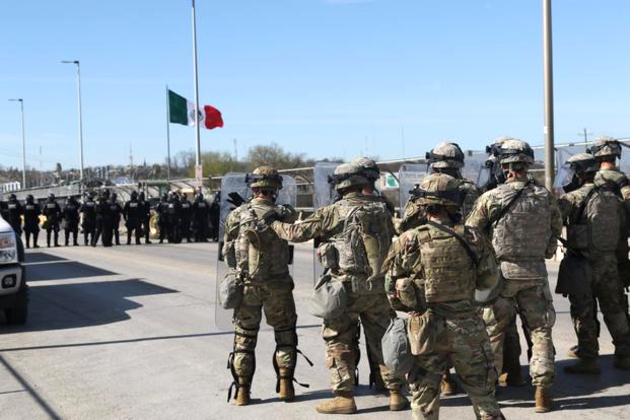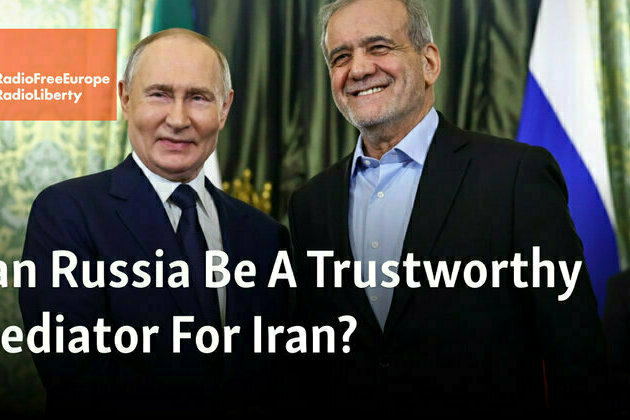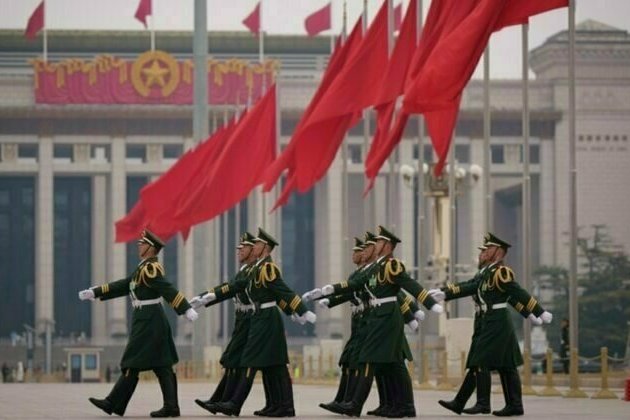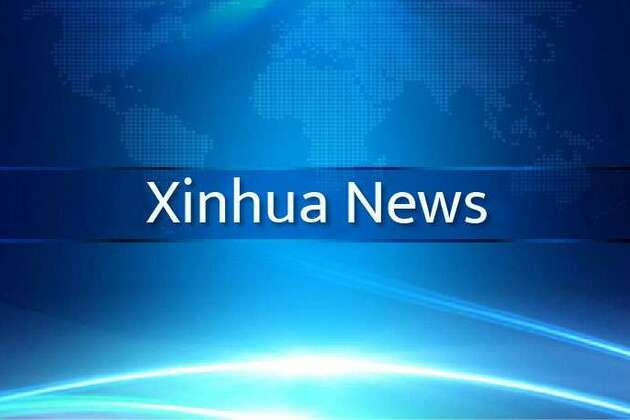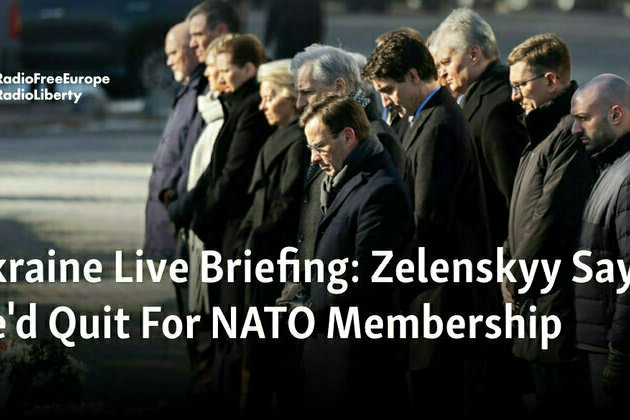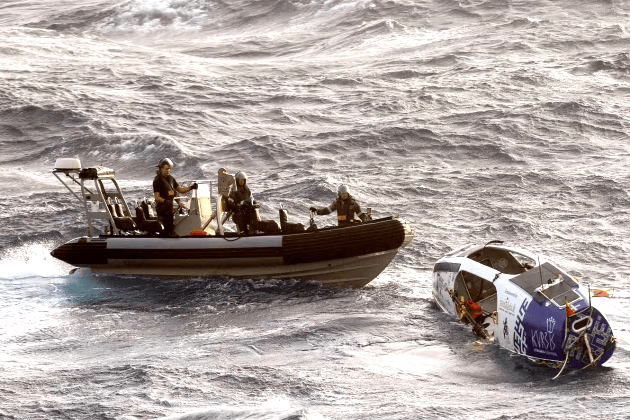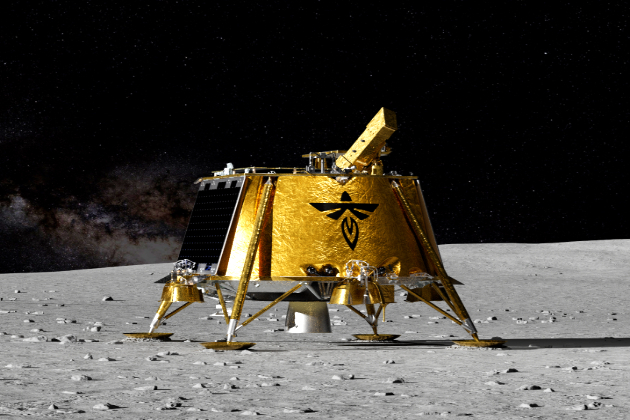World Insights: EU seeks defense autonomy as transatlantic rifts widen
Xinhua
07 Mar 2025, 17:48 GMT+10
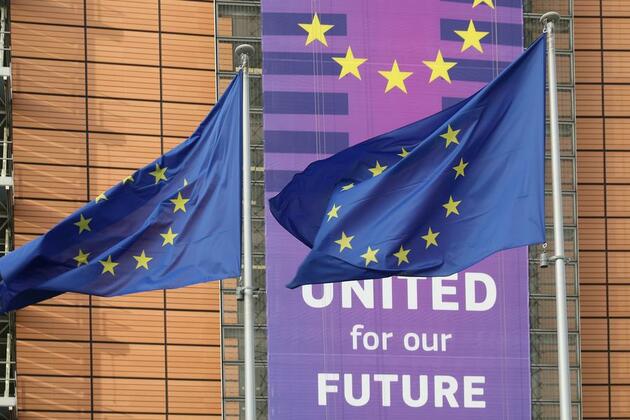
The EU leaders endorsed the ReArm Europe plan and agreed to activate the national escape clause under the Stability and Growth Pact in a coordinated manner, which allows for increased defense spending and provides immediate budgetary flexibility across member states.
BRUSSELS, March 7 (Xinhua) -- As the United States is scaling back its security commitments to Europe, transatlantic ties are fraying. Amid mounting concerns, EU leaders convened a special summit here Thursday to discuss strengthening Europe's defense and its support for Ukraine.
REARM EUROPE PLAN APPROVED
At the one-day summit, the leaders endorsed the ReArm Europe plan introduced by European Commission President Ursula von der Leyen, marking the EU's significant step toward greater defense autonomy amid shifting transatlantic ties.
The post-summit statement described the Ukraine crisis as an "existential challenge" for the EU, urging Europe to assume greater responsibility for its defense.
The EU leaders agreed to activate the national escape clause under the Stability and Growth Pact in a coordinated manner, which allows for increased defense spending and provides immediate budgetary flexibility across member states.
Von der Leyen formally introduced her 800-billion-euro (869-billion-U.S. dollar) plan on Tuesday to significantly increase defense spending across the bloc. The plan establishes a 150-billion-euro (163-billion-U.S. dollar) loan program to help EU countries jointly invest in critical military assets.
The leaders acknowledged the loan program, and urged the decision-making European Council to "examine this proposal as a matter of urgency," according to the statement.
SIGNIFICANT OBSTACLES REMAIN
Despite the joint statement, some EU leaders voiced concern over the plan. POLITICO Europe reported that Italian Prime Minister Giorgia Meloni was worried about the impact the loans could have on the market's perception of Italy's debt.
Hungarian Prime Minister Viktor Orban wrote on social media platform X that while he supports strengthening Europe's defense capabilities, such efforts should empower member states rather than Brussels bureaucrats.
Jian Junbo, deputy director of the Center for China-Europe Relations at Shanghai-based Fudan University, cautioned that despite the agreement, significant obstacles remain in executing the plan.
He believes that key questions remain unresolved, such as whether member states are willing to bear the financial burden and how funds will be allocated. Further uncertainties include coordination with NATO and balancing European defense ambitions with U.S. strategic interests.
"This is not just a numbers game, it's a fundamental decision about the future direction of EU defense strategy, requiring further negotiation and coordination," Jian said.
DIVISIONS PERSIST ON UKRAINE SUPPORT
Orban on Thursday opted out in a statement on Ukraine, highlighting divisions within the bloc.
The leaders but Orban approved the bloc's stance that there can be no negotiations on Ukraine without Ukraine and that Europe must be involved in any talks involving its security. Recently, the EU has found itself sidelined in peace talks over Ukraine, with the United States taking the lead.
Commenting on Hungary's stance, EU foreign policy chief Kaja Kallas said that the EU seeks unity among all 27 member states on Ukraine. "If that's not possible, then Hungary can speak for itself," she said.
The debate on deploying a European peacekeeping force to Ukraine saw little progress. Meloni dismissed the idea as "the least effective option," arguing that Ukraine's most stable and lasting security guarantee will be bringing it under NATO's Article 5, which treats an attack on Ukraine as an attack on all NATO members.
LIMITED DEFENSE AUTONOMY?
Analysts say Europe has intensified efforts toward defense and strategic autonomy in response to Washington's abrupt policy shift toward its transatlantic allies. However, given its profound reliance on the United States, Europe may only achieve "limited autonomy" in defense.
Yang Cheng, executive dean of the Shanghai Academy of Global Governance and Area Studies, noted that post-World War II European security has been fundamentally based on U.S. protection.
However, it seems that the United States under the current administration sees limited value in offering such public goods for free. Yang noted that by exploiting Europe's deep-rooted Russophobia, Washington can advance its strategic goals while reducing the costs of sustaining its waning global supremacy.
Ding Chun, director of the Center for European Studies at Fudan University, said Europe faces key hurdles as it seeks security structures beyond NATO.
Europe remains reliant on the United States geopolitically, militarily, economically and ideologically, Ding said. Given these constraints, he argued that "limited autonomy" may be Europe's only feasible defense path going forward.
Ding expects the EU to reduce reliance on the United States in certain military functions, such as developing independent intelligence analysis centers. Meanwhile, it may adopt a "NATO+" approach -- maintaining NATO's formal legitimacy while gradually shifting key responsibilities to EU defense institutions.
 Share
Share
 Tweet
Tweet
 Share
Share
 Flip
Flip
 Email
Email
Watch latest videos
Subscribe and Follow
Get a daily dose of Illinois Intelligencer news through our daily email, its complimentary and keeps you fully up to date with world and business news as well.
News RELEASES
Publish news of your business, community or sports group, personnel appointments, major event and more by submitting a news release to Illinois Intelligencer.
More InformationNorth America
Section3,000 more active-duty troops sent to US-Mexico border
WASHINGTON, D.C.: The U.S. is sending about 3,000 more soldiers to the U.S.-Mexico border as President Donald Trump pushes to stop...
World Insights: EU seeks defense autonomy as transatlantic rifts widen
Flags of the European Union fly outside the Berlaymont Building, the European Commission headquarters, in Brussels, Belgium, Jan. 29,...
Can Russia Be A Trustworthy Mediator For Iran
Welcome back to The Farda Briefing, an RFE/RL newsletter that tracks the key issues in Iran and explains why they matter. I'm RFE/RL...
China criticizes Trump tariffs, threatens possible retaliation
TAIPEI, TAIWAN — Chinese Foreign Minister Wang Yi on Friday criticized the United States for imposing tariffs on Chinese imports and...
Update: Chinese miracle to be followed by even more remarkable high-quality development: FM
BEIJING, March 7 (Xinhua) -- The Chinese miracle of unprecedented high-speed growth will be followed by even more remarkable high-quality...
Ukraine Live Briefing: New Talks Set With US
RFE/RL's Live Briefinggives you all of the latest developments on Russia's full-scale invasion of Ukraine, Western military aid to...
International
SectionPentagon requires weekly accomplishment reports after Musk’s demand
WASHINGTON, D.C.: The Pentagon told its civilian employees that they must provide a list of five bullet points detailing their accomplishments...
Australian warship rescues Lithuanian adventurer in Coral Sea
MELBOURNE, Australia: An Australian warship rescued Lithuanian adventurer Aurimas Mockus this week after he became stranded in the...
3,000 more active-duty troops sent to US-Mexico border
WASHINGTON, D.C.: The U.S. is sending about 3,000 more soldiers to the U.S.-Mexico border as President Donald Trump pushes to stop...
Members allowed to switch as Medicaid provider loses accreditation
ANNAPOLIS, Maryland: Maryland's largest managed care organization for Medicaid recipients has had its accreditation suspended, prompting...
US aircraft carrier in South Korea after North Korea's missile tests
SEOUL, South Korea: A U.S. aircraft carrier reached South Korea over the weekend, shortly after North Korea test-fired cruise missiles...
Marking a first, Firefly Aerospace's Blue Ghost lands on the moon
WASHINGTON, D.C.: Firefly Aerospace has achieved a major milestone in private space exploration, successfully landing its Blue Ghost...

